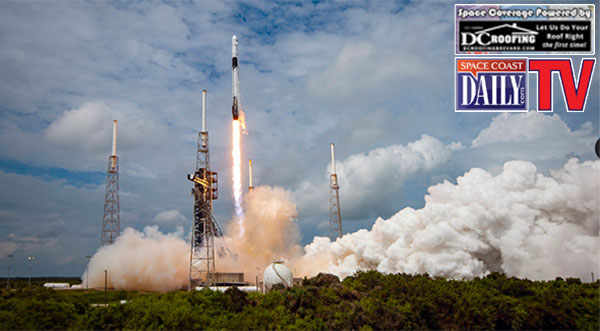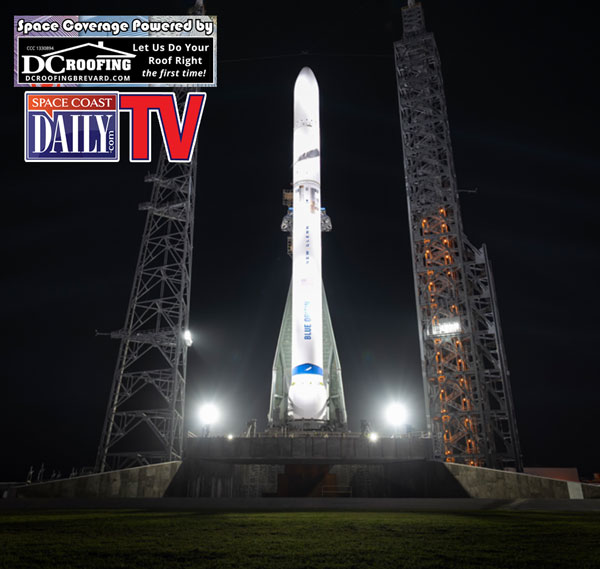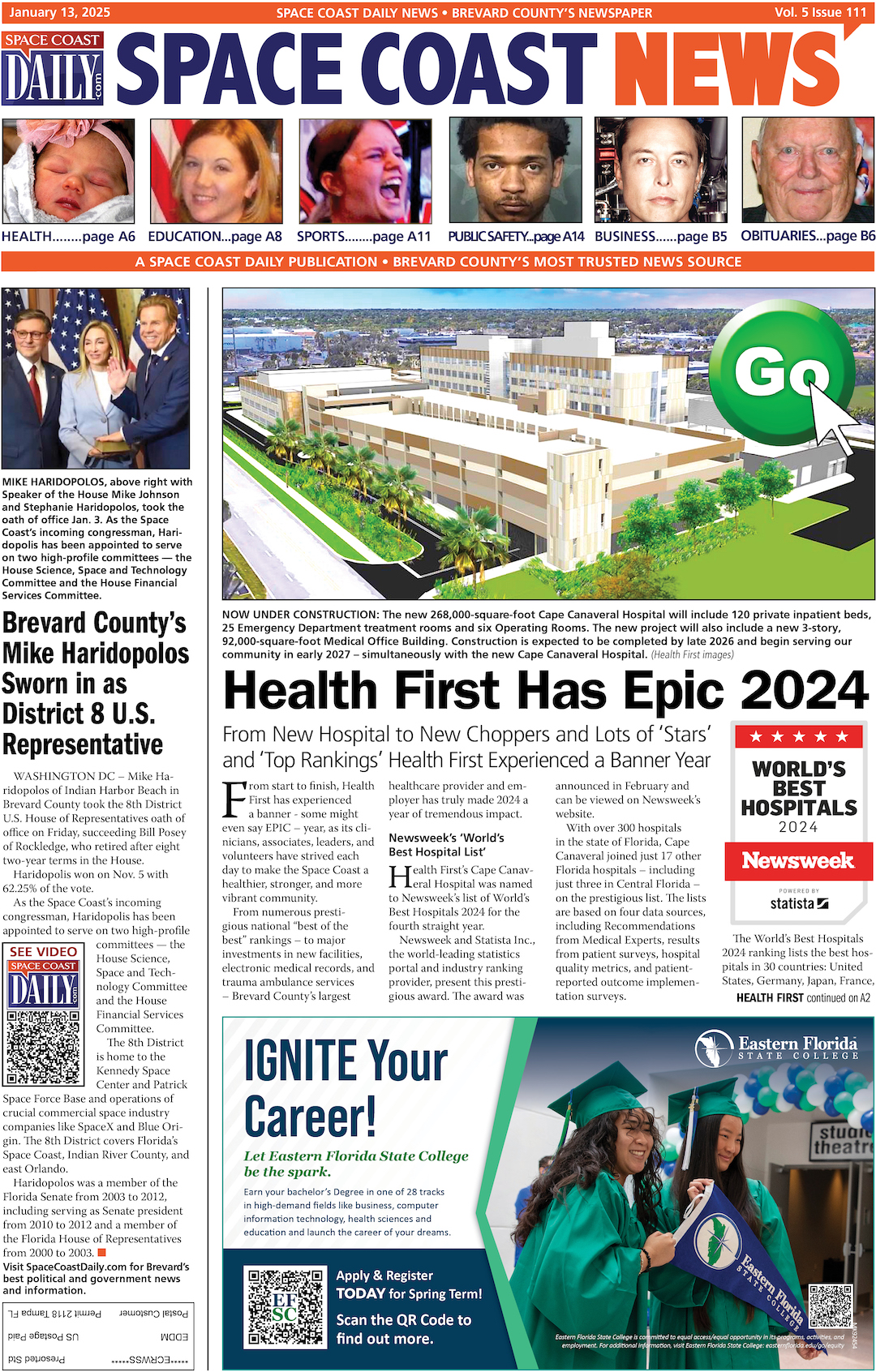Florida’s Space Coast Breaks Rocket Launch Records with 93 Missions in 2024
By Space Coast Daily // January 11, 2025
SpaceX accounted for an overwhelming 88 of the 93 launches from the Eastern Range in 2024

BREVARD COUNTY, FLORIDA – Florida’s Space Coast marked a historic milestone in 2024, achieving a record-breaking 93 launches from Cape Canaveral Space Force Station and NASA’s Kennedy Space Center.
This impressive feat surpasses the 74 launches conducted in 2023, underscoring the rapid advancements in space launch capabilities.
Brig. Gen. Kristin Panzenhagen, commander of the Eastern Range and Space Delta 45, credited this accelerated pace to innovations in both government and private sector operations.
“We’ve been able to reach these crazy numbers by leveraging automation, modernizing infrastructure, and streamlining processes,” Panzenhagen told SpaceNews.
Space Launch Delta 45’s Role
Space Launch Delta 45, headquartered at Patrick Space Force Base in Florida, manages space launch operations on the East Coast.
The unit’s efforts were pivotal in accommodating the increased activity, implementing new processes to reduce turnaround times between launches. Automated flight safety technologies, particularly those developed by SpaceX, have significantly cut down on the personnel and time required for pre-launch preparations.

SpaceX Leads the Way
SpaceX accounted for an overwhelming 88 of the 93 launches from the Eastern Range in 2024, with the remaining five conducted by United Launch Alliance (ULA).
The company achieved a remarkable 134 missions across the year, including:
■ 62 launches from Cape Canaveral Space Force Station.
■ 26 launches from Kennedy Space Center.
■ 46 launches from Vandenberg Space Force Base in California.
■ Four test flights of its next-generation Starship vehicle from its Texas facility.
The Space Force’s Space Systems Command introduced the “One Falcon” initiative to support SpaceX’s rapid cadence. This program unifies personnel across the Eastern and Western Ranges, enabling teams to support launches from either coast.
“This cross-training effort enables us to surge resources where needed and fully utilize the talent on that team,” Panzenhagen explained.
Implications for National Security
Although only four of the 93 Eastern Range missions in 2024 were national security space launches, the surge in commercial activity has indirect benefits for military operations. Innovations in commercial space infrastructure and rapid response capabilities enhance resilience and responsiveness for national security missions.
Panzenhagen highlighted the “Rapid Response Trailblazer” RRT-1 mission, where SpaceX launched a GPS satellite under a compressed timeline, as an example of this synergy.

Growing Competition
Looking ahead, the Space Coast anticipates increased competition in the national security launch sector.
Blue Origin, backed by Amazon founder Jeff Bezos, is set to debut its New Glenn rocket in early 2025.
The company, which became a national security space launch provider in 2024, must complete a successful inaugural flight to compete for task orders under its contract. “Anytime we can get a new company and a new rocket design into the mix, it improves our resiliency,” Panzenhagen noted.
Meanwhile, ULA’s Vulcan Centaur rocket awaits certification for national security missions. Despite completing two flights in 2024, an anomaly with one of its solid boosters has delayed its full operational status.
“We’re working with them through the engineering process and look forward to seeing Vulcan fly,” Panzenhagen said.
The Vulcan Centaur is designed to replace ULA’s Atlas 5 and Delta 4 vehicles, serving as a key element in the Space Force’s strategy to maintain multiple launch options.
A Bright Future for Space Launches
The record-breaking activity on Florida’s Space Coast highlights the growing demand for space access and the collaboration between government and industry.
As new players like Blue Origin and advanced rockets like the Vulcan Centaur join the mix, the region is poised to continue its leadership in space exploration and national security capabilities.













